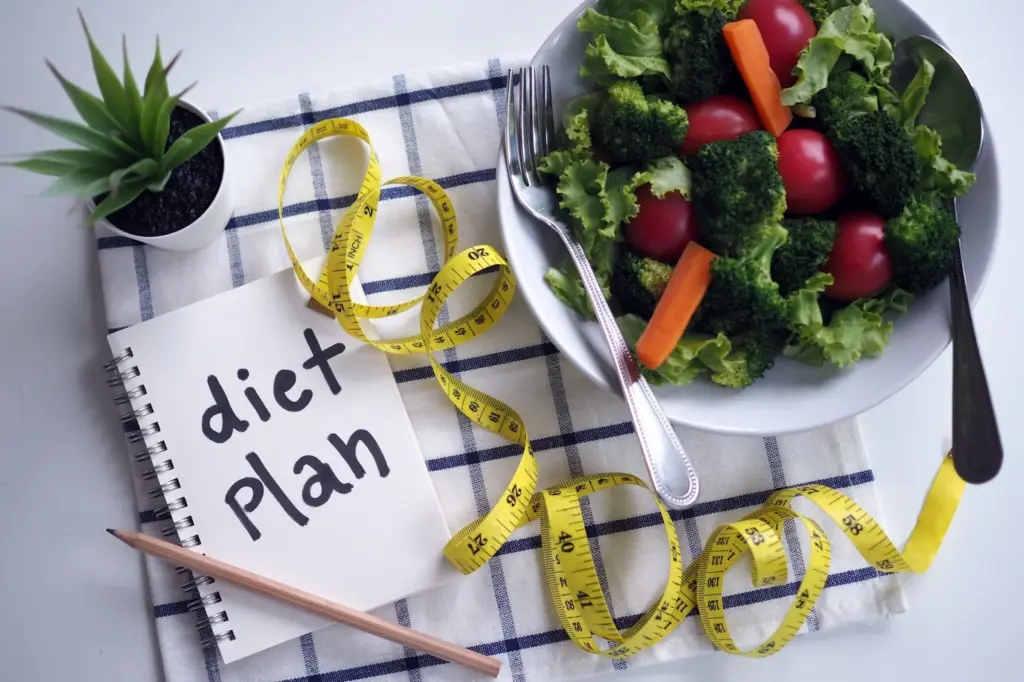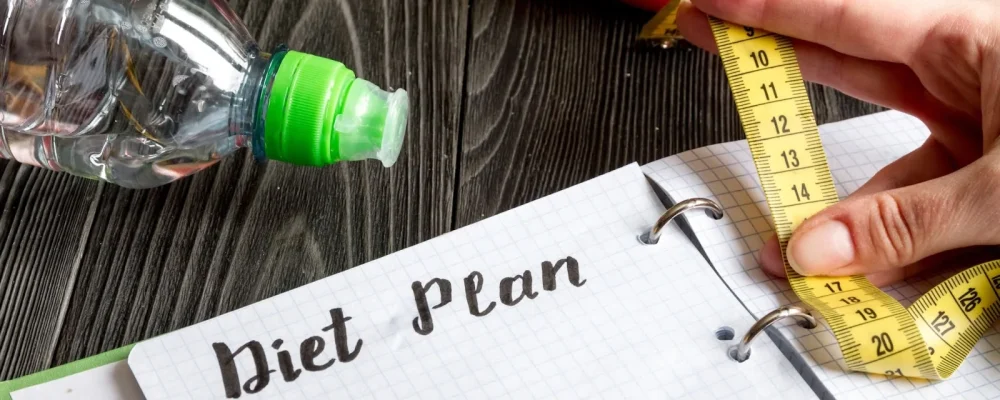Have you chosen a plant-based diet to be your partner in your weight loss goals but have no idea how to incorporate the diet into your schedule? Well, I’ve got your back. In this post, I’ll walk you through how to follow this diet and some essential considerations to remember during your weight loss journey. So, let’s discuss a plant-based diet and its importance in weight loss management.
What Is A Plant-Based Diet? The Basics
Plant-based diets are exactly what they sound like – they mainly consist of plant-based foods like fruits, vegetables, nuts, seeds, whole grains, and legumes. While you can still include some meat, poultry, eggs, fish, and dairy products, the primary source of nutrients comes from plants. It’s not a strict vegetarian or vegan diet, but plants take the spotlight in this eating approach.
There’s no fixed ratio of plant to animal foods on a plant-based diet, but a good rule of thumb is to make at least two-thirds of each plate or meal filled with plant-based options. The main focus is on incorporating more plants into your diet.
Importance of a Plant-Based Diet for Weight Loss

If you adore the bountiful array of plant-based foods that nature offers, a veg-forward diet could be your ultimate ticket to success. According to Bonnie Newlin, RD, from Crave Nourishment in Annapolis, Maryland, plant-based eating reigns supreme regarding weight loss. And why is that? Well, plants are naturally low in calories, rich in fiber, and packed with many health-boosting nutrients, contributing to more effective weight loss.
Speaking of fiber, it’s not just a silent player in this game. Dietitian Melissa Mitri, RDN, hailing from Monroe, Connecticut, explains that when the fiber is digested, it produces short-chain fatty acids in the stomach, releasing hormones that squash those pesky hunger pangs. So, you not only shed pounds but also feel fuller and more satisfied—win-win!
While it’s true that an all-plant diet can indeed help with weight loss, it’s essential to recognize that it might not be everyone’s cup of tea. According to Johnston, there’s no one-size-fits-all approach to dieting, and people should pick the plan that suits them best to achieve stellar results. She argues that cutting out all animal products could lead to potential mineral deficiencies, such as vitamin B12, vitamin D, protein, and iron. So, if you embark on a long-term vegan journey, it’s crucial to address these nutrient concerns and consider taking supplements to keep your health in check.
Whether you go all-in on the veggie train or choose a different path, the key is to be well-informed and tailor your diet to meet your body’s unique needs and goals. So, embrace the greens and choose wisely—your body will thank you!
How to Follow a Plant-Based Diet for Weight Loss?
Following a plant-based diet can be an effective and healthy approach to weight loss. By focusing on nutrient-rich, whole foods from plant sources, you can nourish your body while reducing calorie intake. Here are some key steps to successfully follow a plant-based diet for weight loss.
Avoid Highly-Processed Foods
When following a plant-based meal for weight loss, you want to steer clear of those highly processed foods. Say no to sugary snacks, refined grains, and artificial additives. Instead, opt for whole, natural plant-based foods like fruits, vegetables, and whole grains. These choices are rich in nutrients and fiber and help you feel fuller for longer, keeping those unhealthy cravings at bay. Avoiding processed foods reduces your calorie intake and improves your health.
Add More Non-Starchy Vegetables
Load your plate with various non-starchy vegetables like leafy greens, broccoli, bell peppers, and zucchini. These powerhouses are low in calories but packed with important vitamins, minerals, and antioxidants your body requires. Plus, their high fiber content aids digestion, supports a healthy gut, and contributes to sustained weight loss. So prioritize non-starchy vegetables in your plant-based diet to keep your calorie count in check and your health on track.
Prioritize Superfoods
Superfoods are going to be your secret weapon on your weight loss journey. You’ll want to include chia seeds, quinoa, kale, and berries in your plant-based diet. These nutrient-packed wonders provide incredible nutrition and help boost your metabolism and keep you full and satisfied. Besides whole foods you can also try some superfood powder available in the market. With superfoods on your side, managing your weight effectively becomes much easier.
Add More Proteins
You must ensure you’re getting enough protein while following a plant-based diet. Look to sources like lentils, chickpeas, tofu, and tempeh to meet your protein needs. Protein is essential for preserving muscle mass and increasing your metabolic rate, crucial for successful weight loss. So don’t forget to incorporate ample plant-based proteins into your meals to support your weight loss efforts and achieve that toned, healthy body.
Cut Out Added Oil
While healthy fats are important in a plant-based diet, it’s time to reduce added oils to optimize weight loss. Instead, focus on getting healthy fats from avocados, nuts, and seeds. Added oils are calorie-dense and can quickly sabotage your weight loss goals. So, consider using cooking methods like steaming, baking, or sautéing in water to reduce unnecessary calories while enjoying delicious and nutritious plant-based dishes. Your waistline will thank you!
Things to Consider Before Following a Plant-based Diet for Weight Loss

If you’re considering a plant-based diet for shedding those extra pounds, there are a few important things to remember. Such as:
Consult with a Professional: Before diving into a plant-based weight loss journey, it’s crucial to consult with a professional or a registered dietitian. They can help assess your nutritional needs, ensure your plant-based diet is well-balanced, and provide all the essential nutrients your body requires.
Avoid Nutrient Deficiencies: Planning balanced meals is key to successful weight loss on a plant-based diet. Focus on incorporating a variety of fruits, vegetables, whole grains, nuts, and seeds to ensure you’re getting all the essential nutrients. Be mindful of potential nutrient deficiencies and consider appropriate supplements if needed.
Prioritize Nutrient-Dense Options: Opt for nutrient-dense choices like colorful fruits and vegetables, whole grains and brown rice, and protein-packed legumes like lentils and chickpeas. These wholesome foods support weight loss and provide a wealth of health benefits.
Stay Hydrated and Protein Savvy: Adequate hydration is vital for weight loss, as it helps control hunger and supports metabolism. Additionally, incorporate plant-based protein sources like tofu, tempeh, beans, and quinoa to support muscle maintenance and recovery during weight loss.
Include Regular Physical Activity: While diet plays a significant role in weight loss, incorporating regular physical activity can enhance your results. Find activities you enjoy, whether jogging, dancing, yoga, or cycling, and make them a part of your routine.
Track Your Progress: Keep track of your progress, dietary habits, and exercise routines. Tracking can help you identify patterns, make necessary adjustments, and stay motivated to achieve your weight loss goals.
FAQs
How Long Does it Take to See Weight Loss Results on a Plant-Based Diet?
Weight loss results vary from person to person. Some may see significant changes within a few weeks, while others might take longer. Consistency and adherence to a healthy plant-based diet and lifestyle are crucial to sustainable weight loss.
Can Children and Teens Follow a Plant-Based Diet for Weight Loss?
Weight loss is not typically recommended for growing children and teens, as they have different nutritional needs for growth and development. However, a well-planned plant-based diet can be suitable for children and teens under the guidance of a pediatrician or registered dietitian.
Are There Any Plant-Based Foods to Avoid for Weight Loss?
While most plant-based foods benefit weight loss, limiting processed foods high in added sugars, refined grains, and unhealthy fats, like vegan junk food and sugary desserts, is essential.
Will a Plant-Based Weight Loss Diet Improve My Digestion and Gut Health?
Plant-based diets rich in fiber can support good digestion and promote a healthy gut microbiome. However, individual responses may vary, and factors like food intolerance should be considered.
Final Thoughts
A healthy, plant-based diet has been proven to benefit body weight significantly. Numerous observational and clinical trials provide compelling evidence, indicating that the positive effects are largely attributed to reduced food energy density and increased postprandial energy expenditure.
Alongside weight loss, plant-based diets enhance overall nutrition, improve blood lipid levels, regulate blood sugar, and reduce blood pressure. Eating a plant-rich diet has numerous advantages, but we understand it might not be the most convenient or appealing option for everyone.
The good news is that there’s always room for improvement in making healthier choices! We all have different starting points, and even small, gradual changes to your daily eating habits towards incorporating more plant-based meals can make a real difference and have lasting health benefits. So, don’t worry if you’re not fully there yet – progress matters.
RV Team
* Reviewology is in partnership or collaborates with top brands highlighted on this site, including those occupying the top ranking positions.
Additionally, we earn affiliate commissions from products showcased on this website when you make a purchase through the provided links on Amazon or the company website directly.
We appreciate your support using our links to purchase your favorite brands or newly discovered brands.
Latest updates
I Thought I’d Always Feel Tired, Fat, and Forgotten—Until This
310 Greens vs AG1
The Truth About 310 Greens: A No-Nonsense Review of This Popular Supplement
Popular
I Thought I’d Always Feel Tired, Fat, and Forgotten—Until This
310 Greens vs AG1
The Truth About 310 Greens: A No-Nonsense Review of This Popular Supplement
© 2024 Reviewology. All Rights Reserved.
